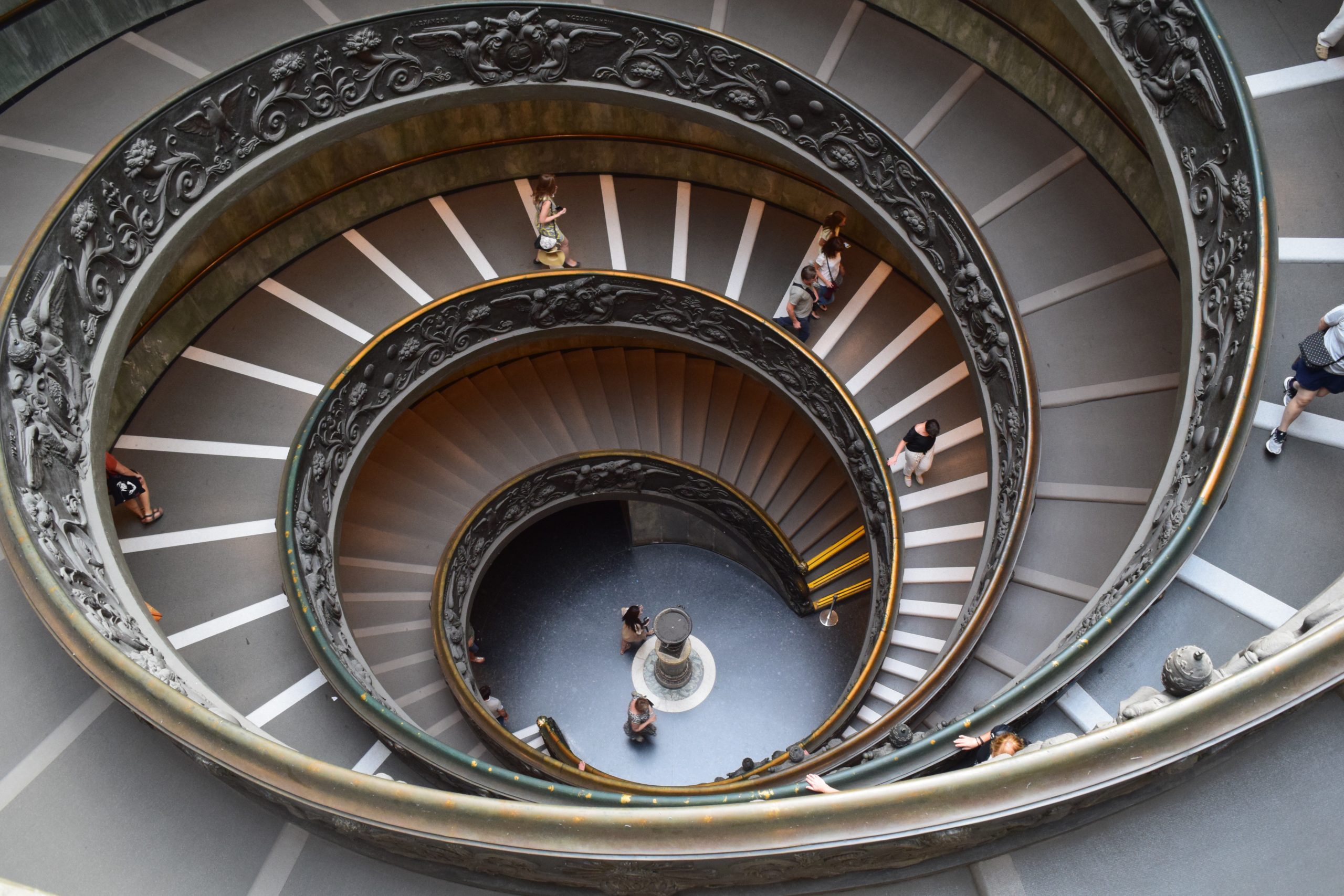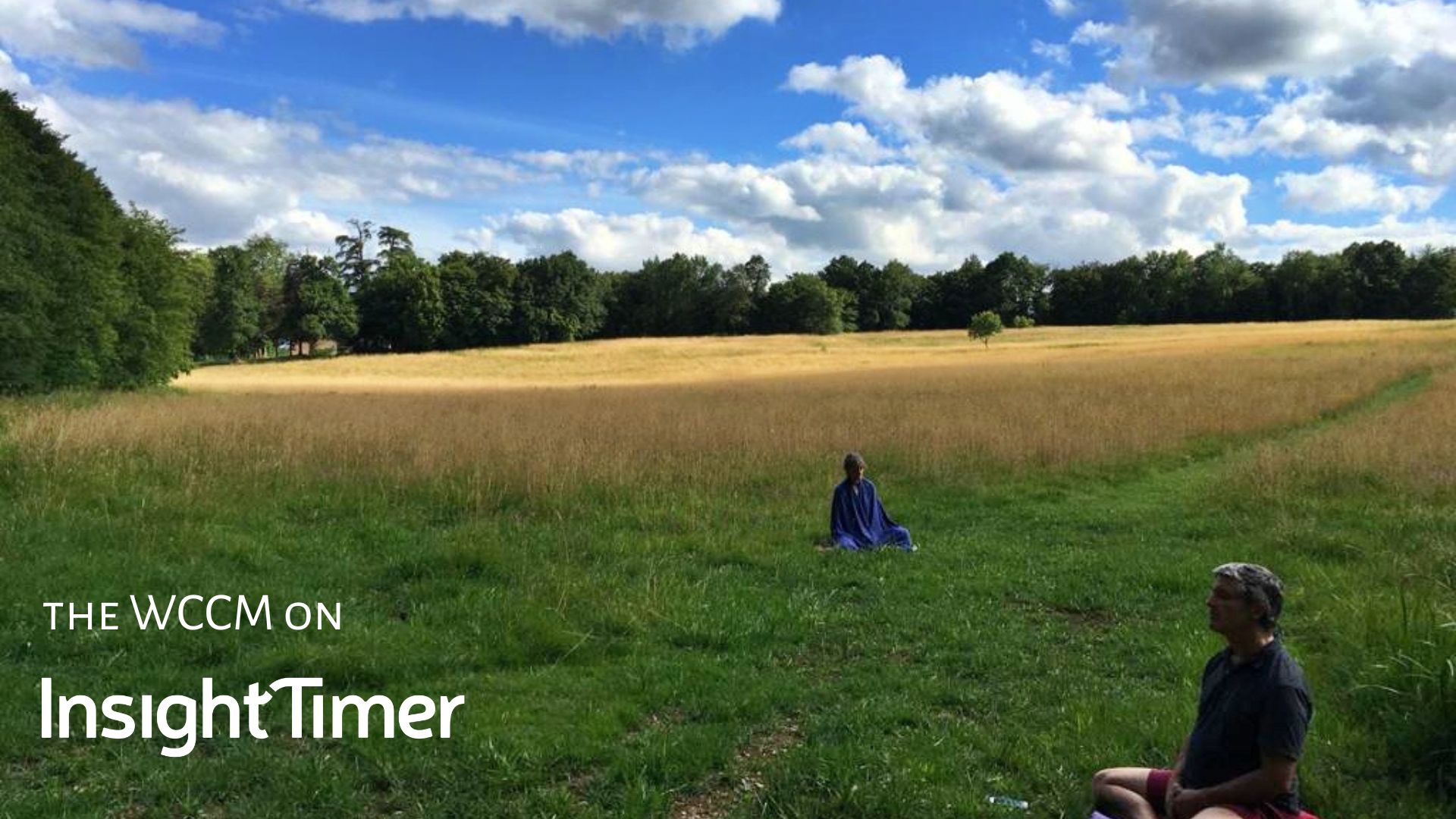Central to Benedict’s Rule is humility. He spends a whole chapter describing humility and how it can be established in the person whilst in community.
Central to Benedict’s Rule is humility. He spends a whole chapter (Chapter Seven) describing humility and how it can be established in the person whilst in community. He breaks down his description into 12 steps. Each step, he says, is like a wrung on a ladder. As each step is satisfied the ladder is ascended. As each step is dissatisfied the ladder is descended. We descend the ladder through our own exaltation (which Benedict calls “a kind of pride”). Going up the ladder means growing in a life of authentic relationship with ourselves, others, and the God in all relationship. To exalt one’s self is, ultimately, egocentric. Egocentricity cuts across healthy relationship. Any praising or raising of our person is not up to us. To seek attention is to court egoism. Any praising or exalting that happens comes to us from others to be accepted by us while experiencing a grounded and earthed life. Exaltation, while accepted and valued and important, is simply seen as not central to our character, our identity. We don’t need it. It’s like a box of chocolates – nice to receive sometimes, however not essential to a balanced diet.
Benedict writes:
Now the ladder erected is our life on earth, and if we humble our hearts the Lord will raise it to heaven. We may call our body and soul the sides of the ladder, into which our divine vocation has fitted the various steps of humility and discipline as we ascend.
Growth in humility is a very human experience. It involves body and soul – the whole of us. It can be quite an uncomfortable experience, especially if we discover that we have been acting out of ego more than anything else. It can be easy to fall into ego’s self-importance, particularly if we have just done or said something which we and/or others think is quite good. We can end up doing things (usually out of our own giftedness) more for our own aggrandisement and less in the service of Love and relationship. The Reign of Love needs to be our focus, not the illusive reign of ego. Much easier said than done!
Central to the structure of Meditatio House itself is a staircase. The house has five levels (including an attic), each of which is accessed via the staircase.
It strikes me that this staircase is much like The Rule’s ladder. It is central to the house. All must use it if life in the house is to function. So too, the ladder in The Rule is central to the life of The Rule and is to be used if life in the community is to grow in God and the expression of deep Self.
Because my room is on the top floor, I have found it quite a humbling experience when I get to the ground floor and realise that I have forgotten something in my room. It is a practical exercise in humility and self-compassion when I turn around and ascend the stairs! The good news is that I ascend with grace (no matter how I might be feeling about my own forgetfulness).
And this is also what we do as we face the ladder and the reality of where we might be on it – we ascend with grace. Ascent of the ladder is not a matter of performing well enough. The ladder is not part of an obstacle course. The realisation and acceptance of just how poorly we are equipped to ascend the ladder is in fact part of climbing the ladder itself. As humility grows grace empowers the way up.
Our meditation practice here at Meditatio House is another way for us to grow in humility, to ascend the ladder. Giving attention to the mantra can be quite a challenge. There are times when whatever is going on in our minds (thoughts, images, memories, emotions) can be all that seems to be happening. We can be lost in them, far away from the mantra and the silence. This is wonderfully ok. The slow and gentle acceptance of this lostness as part of our human condition is part of the humbling journey that grace invites us into during meditation. John Main (our first teacher of Christian meditation) would often talk about ‘the grand poverty of the mantra’ as a way of expressing this humbling journey. We encounter our own poverty, our own lack, on the way of meditation. And what a blessing this is! In this encounter are the seeds of grace. Our struggle with distractions is the soil from which our own transformation grows. The more we can be faithful to our meditation journey, gently and ultimately not giving it up, then the more grace has the opportunity, during meditation, to transform us away from fear and into love.







